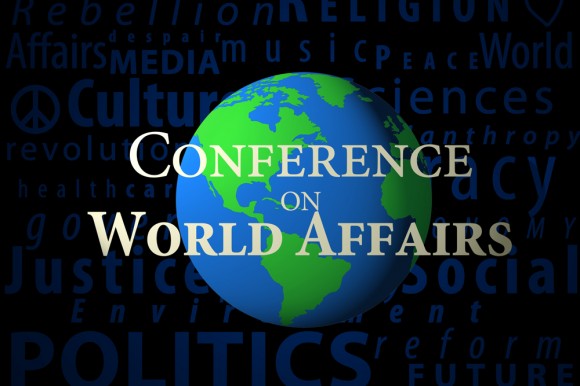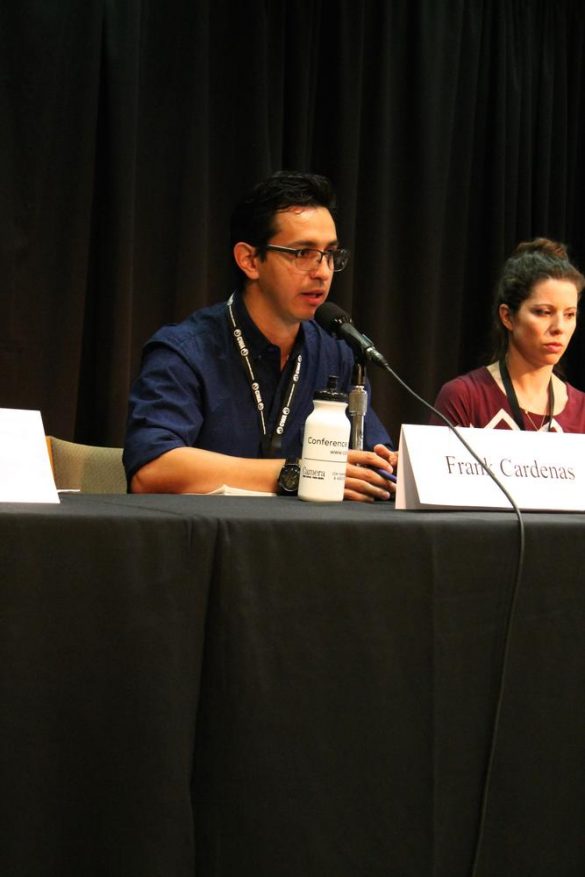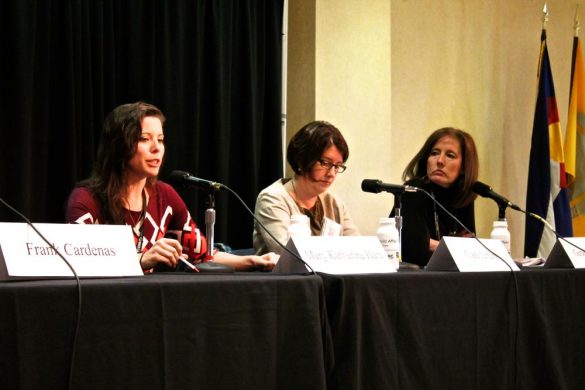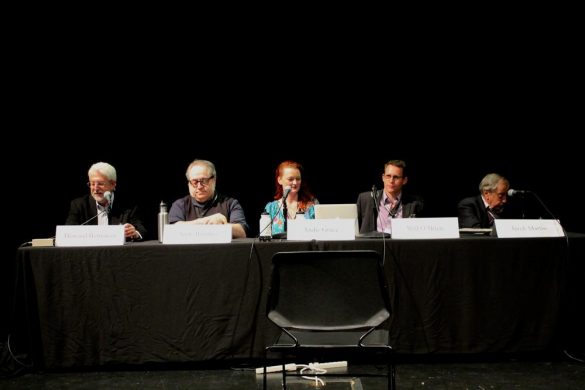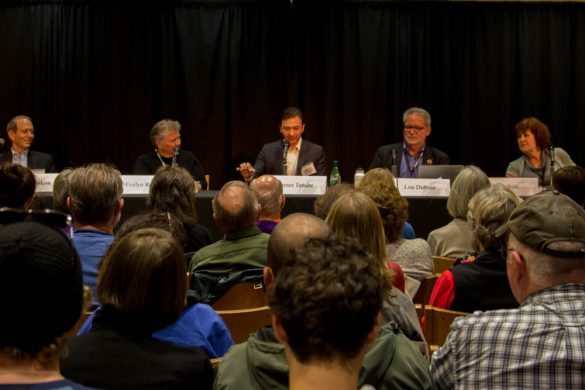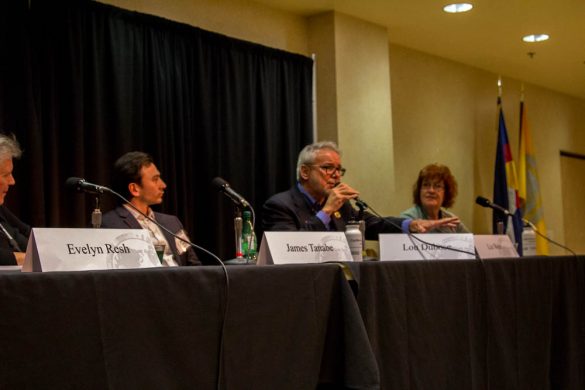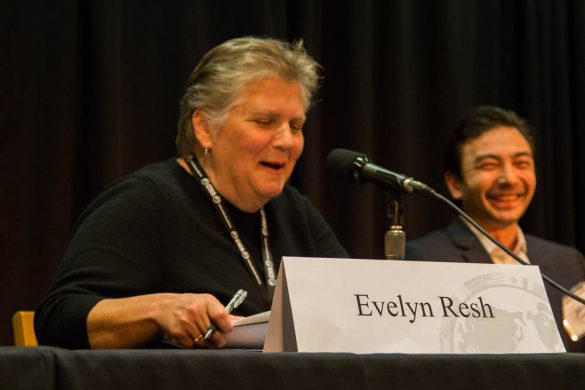With the recent development of a framework for a deal between the United States and Iran aimed at curbing the latter’s nuclear program, the international community is left waiting to see if the negotiation will lead to the desired results.
On April 8, Valerie Plame Wilson, Jim Smith and Robert Kaufman convened in the UMC Ballroom for the CWA panel “Negotiating Nukes with Iran” to hash out their clashing perspectives on the controversial deal.
After 36 years of tense relations with Iran, the United States has been working for months now to lock down Iran in an agreement, and in lieu of this relative win, there is a line dividing those who are optimistic about the agreement and those who predict it won’t be enough.
Wilson, a former CIA operative, and Smith, former ambassador to Saudi Arabia and retired brigadier general, landed on the optimistic side of the line, careful not to make promises of inevitable success.
“While we want to do whatever is in the United States’ best interest, it’s a very sticky situation,” Wilson said. “But it’s a starting point.”
While the situation isn’t perfect, Wilson explained that since we haven’t had official negotiations with Iran for years, this is at least an improvement.
Given the complexity of the situation, the agreement has to be approached tentatively. While the United States can’t cater solely to Iranian needs, it has to respect Iranian methods.
“Iran won’t agree to letting people know that they agreed to the United States’ terms,” Smith said. “You have to let them say it was their choice.”
Kaufman, author and political scientist, doesn’t think that the negotiations will be successful enough to make it to that point. “If Iran is trying to climb down from the ladder it’s on, it has masterfully concealed that desire,” he said.
Setting aside disagreements about whether the negotiations will succeed, the panel looked further into the future in terms of what the negotiations will lead to.
“With any decision, you have to ask yourself, ‘What happens next?’” Smith said. “We’ve shown a capacity to act without acknowledging the unintended consequences.”
Wilson and Smith both believe that the use of force will be counterproductive if agreements are not seen through. With oversight and inspections of nuclear facilities, there is hope that an agreement would be monitored satisfactorily.
Even if these enforcement mechanisms fail, it at least buys the international community time. “The idea behind the negotiations is to provide breathing room for policy to evolve,” Wilson said. “Pentagon leaders believe that any use of force against Iran is an un-winnable battle.”
Smith was on the same page, given that the use of military force would be expected to delay progress. “If the length of the delay in nuclear productivity is equal to the delay caused by a military strike, it’s better to negotiate,” he said.
Kaufman saw a likely need for the use of military force, as he believes that even if the negotiations are temporarily successful, Iran will maintain the infrastructure necessary to allow them to go nuclear within a year.
“The worst option is a nuclear Iran,” he said. “The United States can’t afford to take off the table the use of decisive force to prevent this.”
Setting aside disagreements about the future of nuclear negotiations with Iran, the panelists knew success was ideal and kept their fingers crossed for progress.
“I hope I’m wrong,” said Kaufman, “but I’m usually not.”
Photos from today’s panels:
Contact CU Independent Staff Writer Maggie Wagner at magdalen.wagner@colorado.edu

